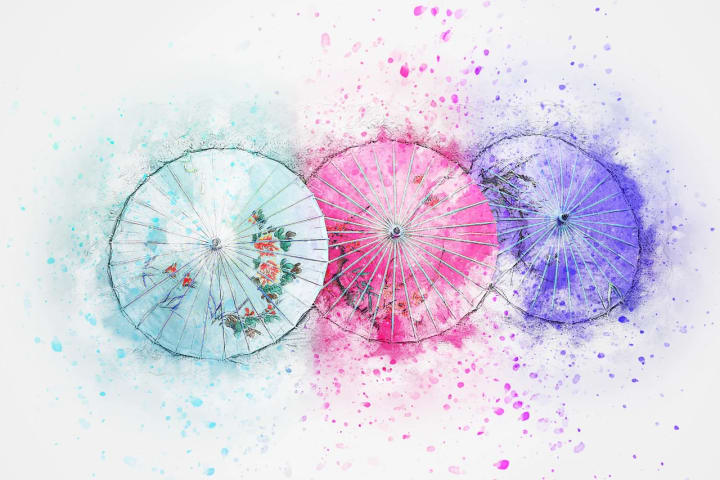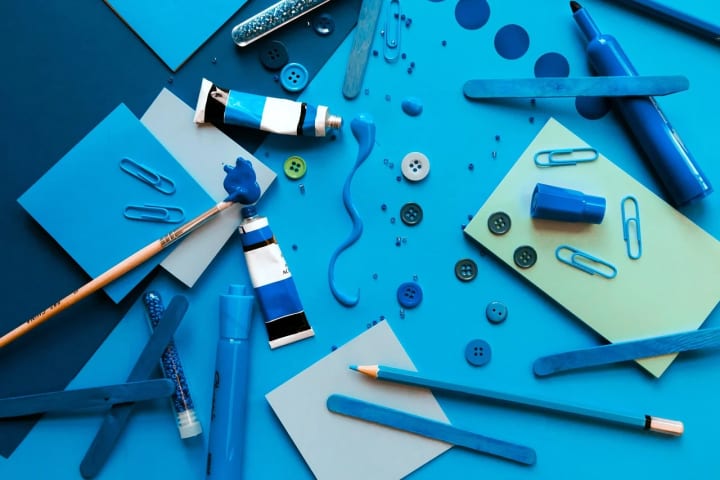Why Do Neurodivergent People Have Quirky Special Interests?
Are we the only ones?

Most people have one or two special interests that they focus on intensely. Maybe it’s stamp collecting, bird watching, or spending hours tinkering with cars. For neurodivergent people such as those having autism or ADHD, special interests often take centre stage in their lives. Special interests can provide a sense of focus and calm for us, neurodivergent individuals. They can also be a source of enjoyment, pride, and accomplishment. When nurtured, special interests can blossom into rewarding hobbies or even prospering careers.
Of course, not all special interests are created equal. Some may be more harmful than helpful (such as those that involve risky behaviour). And some special interests may cause difficulties in social functioning or academics. It is important to be aware of these potential challenges and to seek help if needed. But overall, special interests can be a positive force in the lives of neurodivergent people. So, embrace your special interest, whatever it may be! It just might be the key to a happy and successful life.

Special interests stand out from all other activities. Our brains get an immediate dopamine rush and feel happy by dealing with them. (Photo: Pixabay)
What is so special about special interests?
People have special interests because they help them to focus and connect with the world in a meaningful way. For neurodivergent people, special interests can be a powerful way to find others who share their passion and help them feel understood and accepted. Special interests can also provide a sense of purpose and satisfaction and can be a source of joy. Neurodivergent people often have special interests that are outside the mainstream, or that are considered quirky or odd by others. This can make it difficult for neurodivergent people to find others with similar interests, but it can also make their special interests all the more special to them. Neurodivergent people often have deep knowledge and passion for their special interests, and they may spend a lot of time and energy pursuing them. For some neurodivergent people, special interests can become an obsession, and they may struggle to balance their interests with other aspects of their life. However, for most neurodivergent people, special interests are a positive force in their life and something to be celebrated.

Being passionate and deeply knowledgeable on a certain topic is quite typical for neurodivergent people who can spend many hours on the same activity. (Photo: Pixabay)
“But I am not neurodivergent, yet I am keen on my hobby”
Yes, neurotypical people also can become experts in a particular field and only explore what it has to offer. While neurodivergent people tend to focus on their special interests more intensely, it is not uncommon for neurotypical people to have things that they are deeply passionate about, as well. Special interests can be a source of enjoyment and comfort for both neurodivergent and neurotypical people. They can provide a sense of identity and community, and can be a way to connect with others who share similar interests. For neurodivergent people, special interests can also be a way to cope with the challenges of living in a world that isn’t designed for them. Having a special interest can help provide a sense of order and understanding in a world that may feel chaotic or confusing. While special interests can be a source of joy and comfort, they can also be a source of anxiety and stress. For neurodivergent people, special interests can sometimes be overwhelming or all-consuming. They can be a source of anxiety if they feel like they’re not able to pursue their interests or if they feel like they’re not meeting other people’s expectations. It’s important to remember that everyone is different and that there is no right or wrong way to have a special interest. What matters is that you’re doing what feels right for you.

Neurodivergent or neurotypical, anyone can have a special interest. (Photo: Pixabay)
My personal experience
Technology is one of my special interests. I love gadgets, and I even treat my laptop and phone as friends. I love all things related to it — from learning about the latest gadgets and devices to using them to improve my life. Whether it’s researching online or chatting with friends about the best new phone or app, I enjoy staying up-to-date on all things tech. And I’m not alone: there are plenty of other people out there who share my passion for technology.
While not some kind of cyborg, I “get on well” with tech and often do problem-solving for my friends, too. Technology has evolved to a point where artificial intelligence is starting to come to the scene. While true independent AI still does not exist, the achieved progress is miraculous. I recently got obsessed with AI-generated art. It is truly magical. One can feed a prompt — some phrase — and the AI interprets the text and then produces a picture. One can apply various styles and obtain different results. It is mind-blowing.

Technology is fascinating. Here I have taken a photo of a microchip, though, sadly I cannot remember what device the chip came from. (Author's photo)
My special interest in technology helps me to understand and fix problems quickly, but it also means that I become attached to my gadgets. When something goes wrong, it feels like the world is ending. I get emotionally attached to my devices and enjoy their familiarity. They help me escape the world when I need it. Last year my laptop died. Yes, I use the word “died” deliberately. I could have said “stopped working” since that is, in practice, what happened. It no longer turns on. I investigated the problem and it turned out to be a hardware failure that is not repairable. I was crushed for a week. I literally went through the phases of grief. I was denying it, then I was very sad and miserable, then I was angry and I was wondering what I could have done to prevent it. By the end of the week, I managed to accept it. It’s “just a laptop”. Well, kind of. I started looking for motherboard replacement, though the price was unreasonable. It would have costed me about 300 euro (nowadays about the same in dollars) for a four-year-old model… well… as disturbed as I was by its death, I decided to resist. It was not justified from a financial point of view, especially since I can afford to buy a new device. Luckily, I did not lose any data. That would have been crushing.

Creativity is present in every human being. Naturally, some have learned to employ their talents better but that does not mean that others should not try any creative hobbies. (Photo: Pixabay)
Neurodivergence and creativity
Neurodivergent individuals are often creative due to their unique way of thinking, and I’m no exception. I focus intensely on art in various forms, the most recent of which is AI-generated. Each neurodivergent person has their own special interests, and it’s important to embrace these passions and use them to our advantage. Our special interests make us who we are, and they should be celebrated. We all have our own quirks and things that make us unique.

“Digital art” — an abstract digital artwork that I generated using the AI in the Wombo Dream app.
This article is reposted on my other blogging and social profiles.
About the Creator
Neurodivergent_ai
I combine my passion for technology, science and art, twisting them all through the lens of my neurodivergence. My aim is to raise awareness about various conditions and invisible disability surrounded by stigma, rejection and disbelief.
Reader insights
Nice work
Very well written. Keep up the good work!
Top insights
Heartfelt and relatable
The story invoked strong personal emotions
On-point and relevant
Writing reflected the title & theme
Eye opening
Niche topic & fresh perspectives
Compelling and original writing
Creative use of language & vocab
Excellent storytelling
Original narrative & well developed characters
Easy to read and follow
Well-structured & engaging content
Expert insights and opinions
Arguments were carefully researched and presented
Masterful proofreading
Zero grammar & spelling mistakes







Comments (8)
Thank you for posting this! I recently inherited a son-in-law who is "slightly autistic" in nature. I have been working very hard to understand him. He isn't overly talkative unless the conversation is about something he knows, in which case, no one else will get a word in until he tells you everything he knows about the topic. A lot of people think he's rude, but I have come to understand that he just needs to share, and he feels comfortable sharing about things he understands. He was with us over the weekend and spent most of his time either with his tech devices or putting together very complex Lego structures. I think I am beginning to understand his special interests a little better after reading and am very grateful you wrote this!
I got diagnosed with ADHD late in life and most people think it means we can't pay attention to anything because we're too busy bouncing off the walls but it's actually attention dysregulation. When something interests me I become hype focused to the point that I forget to eat so your article totally gets it!
GREAT article and explanation of special interests. I am autistic and have adhd, which I only recently learned at 31. BUT I have always had special interests that took center stage in my life. The focus has always been around human behavior, psychology and mental health. This trickled down into my business, which funny enough was a struggle because my special interest was a deep passion - not a "9 to 5" niche, so traditional coaching and business rhetoric did not seem helpful or resonate with me. I did not yet know my deep interest and constant obsession around my business area was because it was a special interest. So when others were not as passionate or obsessive about it, I felt like i must not be cut out for business. I was happiest in my own space and world just doing the work and activities without the selling / marketing aspects. I would have neurotypical coaches tell me to take a rest or break or not be so rigid in my thinking about it, which I think is a great challenge for a neurodivergent person especially if you have hyperfocus from ADHD. Thank you for speaking on this and explaining it so well!
well written article
Great article. It’s important to learn more about neurodivergent individuals as well as to highlight areas in which neurodivergent and neurotypical individuals overlap, such as having special interests, even if the special interests have a different kind of hold on neurodivergent individuals. I admittedly relate to more of this than I had expected. Your images here—yours specifically, as opposed to the stock images—are also fantastic. I hope you have an article specifically on AI art because I’d love to learn more about that and see more of some that you’ve created.
A very interesting entry
Wonderful perspective. It's so vital that more Neuro divergent voices are heard.
This comment has been deleted
This comment has been deleted
1000/10 i loved this:)